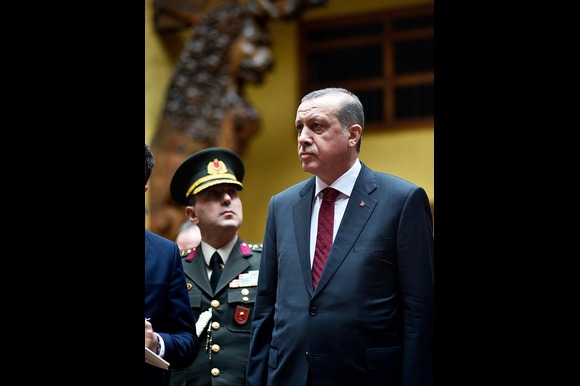In a significant move to bolster the air defense capabilities of a key NATO ally, the U.S. Defense Security Cooperation Agency (DSCA) has approved the potential sale of AIM-120C-8 Advanced Medium-Range Air-to-Air Missiles (AMRAAM) to the Republic of Turkiye. The deal, valued at an estimated $225 million, includes not only the missiles but also a comprehensive support package encompassing logistics and program assistance, according to an official announcement by the DSCA on Wednesday.
The agency confirmed that it has already delivered the required certification to notify Congress of this proposed transaction on May 14, as part of the arms sale procedure. The approval follows Turkiye’s formal request to purchase 53 AIM-120C-8 AMRAAMs along with six AIM-120C-8 AMRAAM guidance sections.
“The proposed sale will serve U.S. foreign policy and national security objectives by enhancing the defense capabilities of a NATO ally that plays a stabilizing role in Europe’s political and economic landscape,” the DSCA stated.
The agreement goes beyond just the delivery of missiles. The comprehensive weapons package includes AMRAAM containers and support equipment, Common Munitions Built-in-Test (BIT) Reprogramming Equipment (CMBRE), spare parts, consumables, and accessories. Additional elements involve repair and return services, weapons system support and software, delivery and support for classified software, technical publications, transportation logistics, studies and surveys, as well as U.S. Government and contractor engineering, technical, and logistics support services. These components are essential to ensuring the long-term operability and integration of the missile system into Turkiye’s defense infrastructure.
This acquisition is expected to significantly strengthen Turkiye’s air defense architecture, a critical focus area in its broader military modernization strategy. Notably, Turkiye had previously acquired the advanced S-400 air defense system from Russia in 2019, a move that drew strong opposition from the United States and strained bilateral defense ties at the time. The S-400 is recognized globally as one of the most sophisticated air defense platforms.
The DSCA emphasized that the proposed missile sale will provide Turkiye with a vital capability to safeguard its territory and to help protect U.S. personnel stationed in the region. “Turkiye will have no difficulty absorbing these articles and services into its armed forces,” the agency said. Furthermore, it clarified that the sale would not disturb the fundamental military balance in the region.
Despite enduring periodic diplomatic tensions—particularly around contentious international issues such as the Israeli-Palestinian conflict—defense cooperation between the U.S. and Turkiye has largely remained intact. Turkish President Recep Tayyip Erdoğan has frequently criticized the United States over its support for Israel, but these political differences have not led to a breakdown in defense transactions. Turkiye continues to be a major purchaser of American-made weaponry.
Over the years, Turkiye has procured a broad array of military equipment from the U.S. as part of its longstanding NATO membership. This includes a substantial fleet of F-16 fighter jets, which form the core of the Turkish Air Force. In the past, Turkiye also operated older U.S. platforms such as the F-4 Phantom aircraft and widely-used helicopters like the UH-60 Black Hawk and CH-47 Chinook.
Turkiye was once part of the U.S.-led F-35 stealth fighter jet program. However, its involvement was suspended in 2019 following its acquisition of the Russian-made S-400 system, which Washington viewed as incompatible with NATO systems and a potential threat to the F-35’s security.
Beyond its air force, Turkiye’s naval and ground forces also incorporate significant amounts of U.S.-origin equipment. The Turkish Navy, for instance, operates ships such as the Oliver Hazard Perry-class frigates. On land, the army utilizes American-designed tanks like the M60 Patton, armored personnel carriers such as the M113, and various artillery systems.
In the missile domain, Turkiye has previously acquired Sidewinder and Maverick missiles for use on aircraft and helicopters. The country has also benefitted from broader U.S. military assistance, including aid, technical training, and technology transfers. Transport aircraft like the C-130 Hercules and aerial refueling tankers such as the KC-135 remain integral to the Turkish military’s logistical operations.
While Turkiye has made strides in developing its own unmanned aerial vehicles (UAVs), it has historically collaborated with the U.S. on surveillance drone technologies as well. Although diplomatic relations have experienced periods of strain—especially after 2019—the core defense partnership between the two nations endures, sustained by ongoing sales, system upgrades, and joint NATO missions.
This latest missile deal is yet another indication that, despite political differences, Turkiye and the United States remain strategically aligned when it comes to regional security and defense cooperation.






